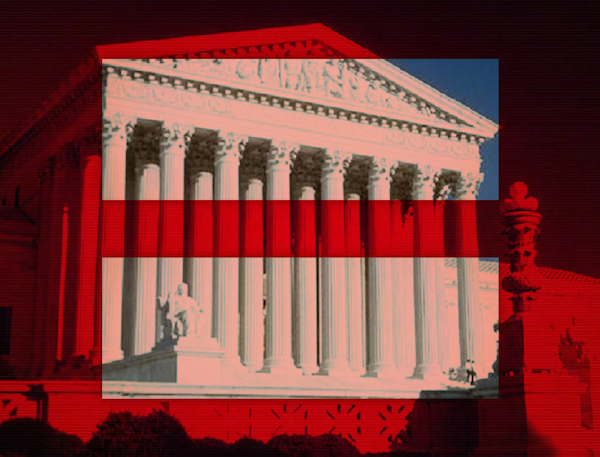Photo by: Nick Conley
Arguments over the legality of homosexuality and the definition of marriage have been brewing for a while, and they have finally reached a crucial decision point. Last week, the Supreme Court began addressing different issues of gay marriage, in what could turn into a landmark ruling.
Not only the Supreme Court but, according to a Fox News Poll, all of America is sharply divided on whether or not gay marriage should be legalized; 49 percent of Americans believe it should be legalized, while 46 percent oppose it.
“I believe, through my Christian faith, that a marriage is between a man and a woman,” said sophomore Jon Stafford. “It says in the Bible, what I believe, that if God had wanted it to be between a man and a man, he would have allowed it from the beginning.”
The Supreme Court spent Tuesday and Wednesday listening to arguments made over gay marriage. Tuesday, the argument concerned Proposition 8.
Proposition 8 was a California ballot referendum that banned gay marriage. It passed by a popular majority of voters, overturning the previously enacted law that gave both homosexual and heterosexual marriages equal status.
“This is a state issue, and the state voted it down, so why is it going to the federal government?” sophomore Caleb Henry said. “Since our nation’s been around, this has been an issue – states’ rights versus national rights.”
Challengers of this ban, however, see Proposition 8 as a blatant violation of the Constitution’s Equal Protection Clause. According to challengers, California provides equal protection to all of its citizens – except gay couples wanting to marry.
“States have the rights to make laws based on their independent beliefs and what the greater populous of their states believes,” junior Brandon Estes said. “However, I think it is a violation of human rights.”
Nine states currently recognize gay marriage, while 31 states, including Oklahoma, have added amendments to their constitution banning it. People question what will happen if the Supreme Court overturns California’s voter-based ban on gay marriage. Will this lead into overruling the 31 other states’ amendments?
“I think it’s a state-by-state thing, just because I think there’s a lot of people in congress that don’t look at where the people are, or what kind of culture is in that area, what demographics there are,” Stafford said.
On Wednesday, the Defense of Marriage Act (DOMA) was brought into question. The act, instigated in 1996 under President Bill Clinton, defines marriage as a union between a man and a woman.
Consequently, a union between a man and a man or a woman and a woman does not legally fall under the definition of “marriage.” When the act was passed 17 years ago, same-sex marriage was simply a theoretical idea. Now it is a very real issue.
The Defense of Marriage Act denies same-sex couples the same federal benefits that are offered to marriages between a man and woman. This has sparked outrage of many people, claiming that this violates equality that the United State promises.
“They are allowed to raise families, so they should be able to get the same benefits as married people,” Estes said.
In an unusual movement, nearly 300 businesses are calling for DOMA to be struck down, including the Business Coalition for DOMA Repeal, whose members include Marriott International Inc., Aetna Inc., eBay Inc. and Thomson Reuters Corp, the corporate parent of the Reuters news agency.
A pertinent moment Wednesday occurred when the House Report from Congress, written when they instigated DOMA, was read: “Congress decided to reflect and honor a collective moral judgment and to express moral disapproval of homosexuality.” Many people see this as proof that Congress voted DOMA on their own preferences and threw politics out the window.
“We voted them in based on their morals,” Henry said. “Hopefully they will vote with their morals. The fact that they voted it morally wrong is exactly why we voted them in. And you always have to put morals above politics, regardless of who you are.”
The fifth, and decisive, vote belongs to Justice Anthony Kennedy, who has suggested that he may be willing to throw out DOMA based on states’ rights.
Theoretically, these arguments could be the first steps towards the national endorsement of gay marriage. Their arguments, however, have suggested that the gay rights activists may only get a partial victory, instead of the sweeping, nation-wide one they were hoping for.
“I think this is progressivism ” Estes said. “I think this is progression of a culture, and it’s going to happen no matter what.”
Suggestions have been made about what decision the court might come to, but these are just hypotheses, and a final ruling may not be made until June.















Be First to Comment